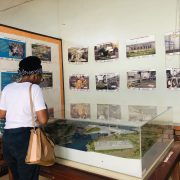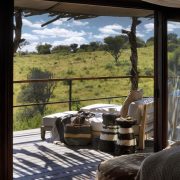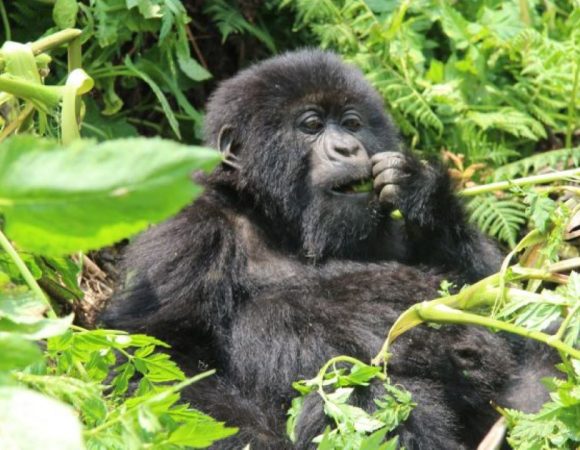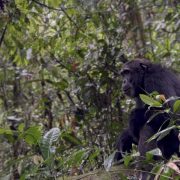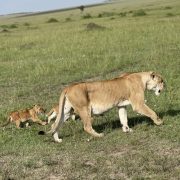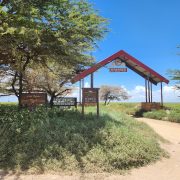
New Baby Gorilla Born in Bwindi Impenetrable National Park
A new baby gorilla has been born to the Rushegura mountain gorilla group in Bwindi impenetrable national park in Uganda. This comes as exciting news for Uganda,the Uganda Wildlife Authority, conservation enthusiasts and tourists with keen interest in the mountain gorillas. The new birth was by the adult female Kibande of the Rushegura mountain gorilla group. Visitors to Uganda have the opportunity to spend time with this ever growing group while on their mountain gorilla trekking adventure in Uganda. The new addition brings the number of gorillas in the Rushegura family to 17. Uganda Wildlife Authority shared the exciting news and also communicated that the baby, mother and father are all in perfect health.
About Mountain Gorillas in Uganda and Bwindi Impenetrable National Park
Uganda is home to half of the population of mountain gorillas with 500 individuals as of 2019. This makes Uganda one of the best place to track gorillas in the world. Mountain gorilla trekking in Uganda is a worthwhile and incredibly fulfilling encounter that brings you closer to these amazing primates in the deep Bwindi forest jungle.
Bwindi impenetrable forest is located in south western Uganda bordering Rwanda and Democratic Republic of Congo and has an altitude range between 1160m and 2607m above sea level. Bwindi impenetrable national park covers an area of 321 square kilometers and is known as one of the most diverse forests in Africa with dense rainforest, ridges, small streams and ridges. Bwindi impenetrable national park is a world UNESCO heritage site, this was declared in 1994. It was gazetted as a national park and named Bwindi which name was derived from a local saying “Mubwindi bwa Nyinamukari”.
Price of a gorilla Trekking Permit in Uganda
Gorilla trekking in Uganda happens in Bwindi impenetrable national park and Mgahinga Gorilla national park. National Geographic recently in July 2023 featured Uganda as a great destination for affordable gorilla encounters.
The gorilla trekking permit in Uganda costs USD 700 per person for Foreign Non-Residents and USD 600 for Foreign Residents. This price applies for both gorilla trekking in Bwindi Impenetrable National Park and Mgahinga Gorilla national park.
How to prepare for your gorilla trek in Uganda
To be on a safe side expect a rather strenuous hike as Bwindi forest is mountainous so it’s better to prepare beforehand so that you are physically fit for the trek. We also advise that you carry strong hiking shoes as Bwindi impenetrable forest consists of slippery and muddy terrain and strong hiking shoes are a requirement as you navigate this mountainous area.
Lastly the weather is expected to be cold as mountain gorillas in Uganda live in misty and cloudy forests so prepare for cloudy and chilly weather.
What to pack for Gorilla Trekking in Uganda
Most tourists visiting Uganda sometimes wonder what they need to pack in order to be well equipped for their gorilla trekking in Uganda adventure. The essentials to pack for the gorilla trek include sun screen to protect your skin from sun exposure, insect repellent use while the trek and at the lodge, a rain jacket or poncho as the weather depending on the season can be unpredictable, a light back pack to carry your packed lunch and drinking water as you head ut for the gorilla trek from your lodge.
You also pack hiking shoes and of course not forgetting your camera to capture memorable photos and extra batteries for the camera.
The Best time to do Gorilla Tracking in Uganda
Gorilla trekking in Uganda is available throughout the year and the gorillas can be visited at any time of the year. The trek is however easier during the dry season which is between the months of June to August and December to March. This does not mean that the gorillas can only be seen during the dry season. The gorillas can still be seen during the rainy/wet season you just have to prepare for a more slippery trek as it will most likely rain more often. This means that the gorilla trek during the rainy season can be done with the help of walking sticks, ranger guides and a porter who can be hired at a small fee of $15.

